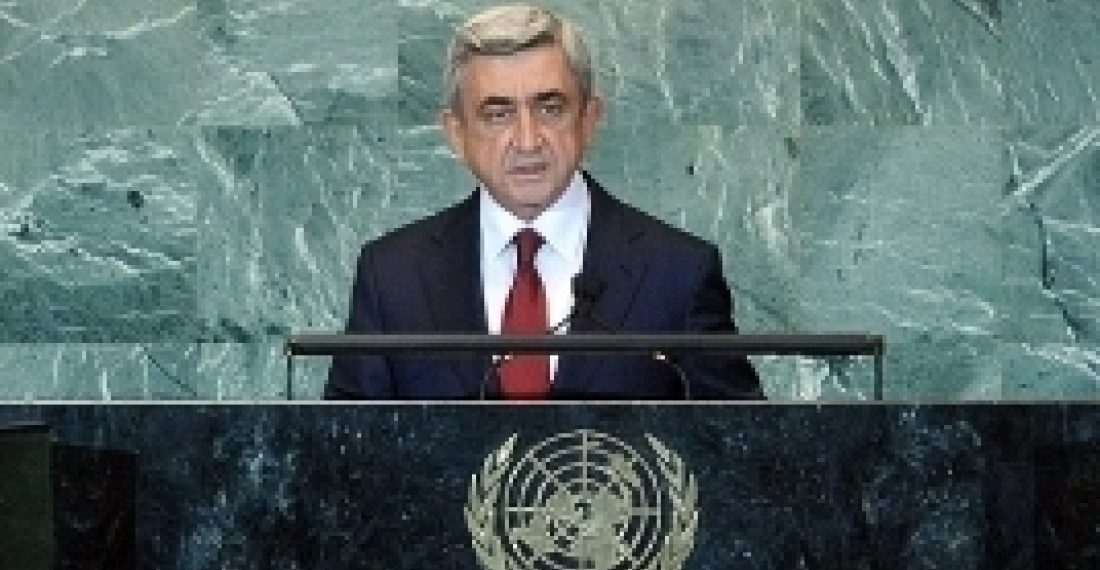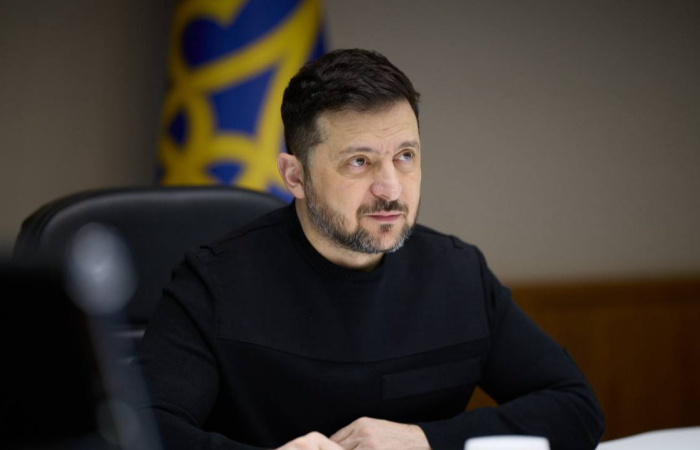Baku has turned armenophobia into state propaganda, at a level that is far beyond dangerous, It is not only our assessment; the alarm has also been sounded by international structures specializing in combating racism and intolerance, Serzh Sargsyan, the President of the Republic of Armenia, said during his speech in the 66th session of the General Assembly.
"Even more dangerously, armenophobic ideas are spread among the young Azerbaijani generation, imperiling the future of peaceful coexistence.
By denying and destroying all that is Armenian, Baku stubbornly continues to disseminate false accusations against Armenia, Nagorno-Karabakh, and the Armenians at all levels everywhere, including here, within the framework of the UN. The Azerbaijani propaganda machine continues regularly to overwhelm the international community and the domestic audience with horrendous lies about the so-called "Armenian brutality" and the killings of children. These stories are fabricated and disseminated using a trite yet painful logic, whereby their authors believe that some people out there will rise to the bait of this black PR against Armenia, and it will thus serve a purpose," Sargsyan said.
He said that in recent years, owing to the efforts of the Minsk Group co-chair countries, particularly the direct mediation by the President of the Russian Federation, a number of documents have been signed, including the Meindorf, Astrakhan, and Sochi Declarations, which have stressed the need to strengthen the confidence-building measures between the parties. The signature of the President of Azerbaijan also stands on those documents.
"Azerbaijan, however, continues to turn down the repeated proposals by the international community concerning agreement on the non-use of force and strengthening the confidence-building measures.
Moreover, the belligerent rhetoric and war threats uttered by Azerbaijan have intensified and ceasefire violations have grown more frequent, continuing to deprive of life innocent civilians. All of this is orchestrated from the highest state level.
The dangerous rise in manifestations of armenophobia not only fails to contribute to an atmosphere of trust in the region, but also leads to questions about Azerbaijan's understanding of the goals of the United Nations to practice tolerance and live together in peace with one another as good neighbors. Aspiring for membership in the Security Council of the UN with such an understanding is impermissible and even dangerous," the Armenian President said.







